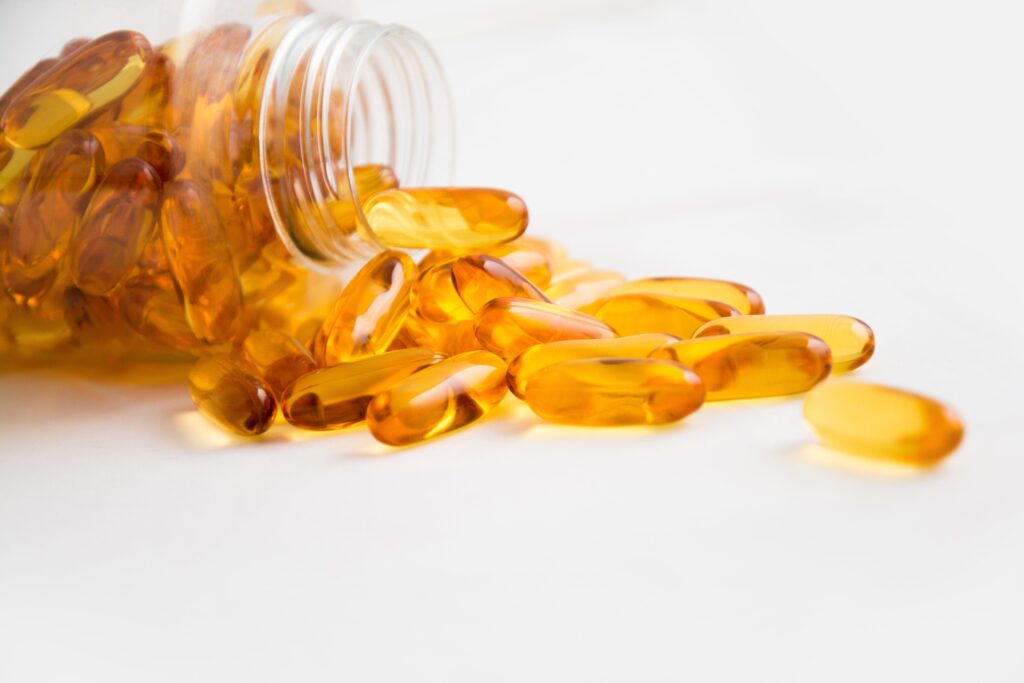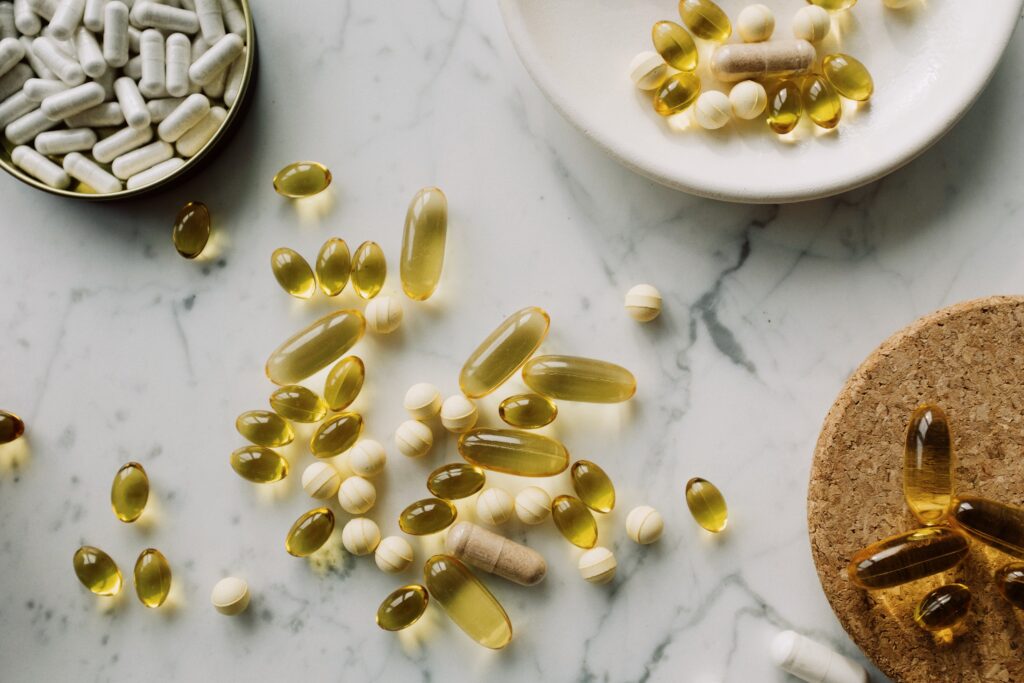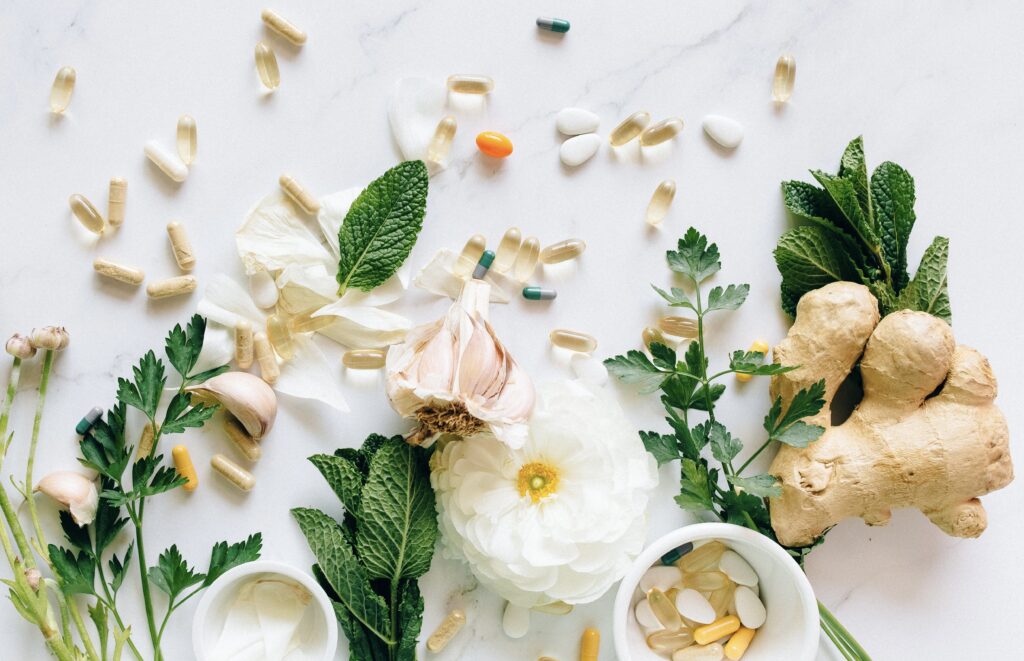Managing Inflammatory Bowel Disease (IBD) can be quite complex and seriously hinder a person’s quality of life. Traditional treatment approaches have varying efficacy and are associated with adverse side effects, causing many to consider turning to supplements as an alternative or adjunct therapy. Although research in this area is still in the early stages, it has recently progressed significantly, producing promising results in support of several supplements for IBD.

What is IBD?
IBD is a category of chronic gastrointestinal inflammatory diseases. The two major types of IBD include Crohn’s disease (CD) and Ulcerative colitis (UC), which are primarily distinguished by the location of inflammation; CD can affect any part of the digestive tract, while UC only appears in the large intestine and typically begins in the rectum (1). Symptoms may include abdominal pain, diarrhea, bloody stool, weight loss, anemia, and malnutrition (2).
Current Treatment Approaches
Although there is no cure to IBD, there are various treatments that can alleviate symptoms and reduce risks of complications (1). For example, corticosteroids often induce remission in UC, however they can cause growth failure in adolescents and osteopenia (3) (4) and discontinued use causes relapse (5).
Additionally, IBD patients are usually recommended to take supplements to resolve deficiencies. Nutrient deficiencies are common, particularly in CD as inflammation in the small intestine limits nutrient absorption. Iron, calcium, and vitamin B12 deficiencies are especially prevalent. Calcium is of particular concern if using corticosteroids as it is essential in maintaining bone health, further exacerbating the risk for osteopenia (6).
Traditionally, supplements have not been consistently used in IBD other than to resolve nutrient deficiencies. However, they can be a very useful tool! Now, let’s dive into exactly which supplements may be of use and explore why.
Supplements for IBD: Probiotics

Potentially the most promising avenue for treating IBD with supplements is the use of probiotics. Research has shown that individuals with immune-mediated inflammatory diseases including IBD exhibit gut dysbiosis, that is an imbalance of gut microbes. It is believed that this leads to abnormal immune responses, contributing to the development of disease (1). Consistent with this theory, probiotics have been investigated as a potential IBD treatment.
Evidence suggests that probiotics may be most beneficial when they contain multiple species as this may increase the likelihood of colonization and symbiosis between strains (3). In particular, the multi-strain probiotic VSL#3 has successfully prevented relapse, induced remission, alleviated symptoms, and increased the benefits of standard therapies in IBD patients (1).
It is important to note that results differ for UC and CD. There are fewer high quality studies for treating CD with probiotics compared to UC, most of which produced less favorable results. Additionally, different strains may benefit active IBD compared to remission maintenance. For example, the probiotic Escherichia coli (EcN) may aggravate active UC but promote remission maintenance (1). Thus, it is important not to expect all probiotics to be useful in all circumstances, and to carefully select them to suit an individual’s needs.
Overall, while more research is needed surrounding the benefits of different probiotics, it is clear that they can be highly beneficial. One systematic review found that 19 of the 21 studies examined found significant positive effects of probiotics for UC and CD (3). Unlike corticosteroids, probiotics are not associated with negative side effects, and could therefore be a long term solution in the future.
Other Supplements for IBD
Prebiotics:
Prebiotics are nondigestible food components that act as nutrients for beneficial gut microbes, promoting their growth and positive health outcomes for the human host. Prebiotics, specifically certain fibres and oligosaccharides, may also help manage IBD. For instance, UC patients who consume the prebiotic fibre inulin experience an appreciable increase in butyrate production by gut microbes, which is in turn correlated with reduced inflammation and symptoms. Similarly, sprouted barley has been found to lower inflammatory markers and abdominal pain (3). Prebiotics may also reduce the risk of developing IBD in the first place. One 26 year study of nearly 200 000 women showed that a high fibre diet reduced the risk of developing CD by 40% (1).

Prebiotics are not only available as supplements but are naturally found in select foods. Some rich sources of prebiotics include chicory root, artichoke, asparagus, onion, garlic, green bananas, and cooked and cooled starches. Therefore, in addition to supplements, diet can play a key role in managing IBD.
Omega 3 fatty acids from fish oils:
Omega 3 fatty acids are renowned for their anti-inflammatory properties, suggesting they could possibly benefit IBD. When administered alongside antioxidants and fibre, omega 3s from fish oils were shown to lower the dose of corticosteroids needed to treat UC symptoms (5). However, a meta-analysis of 6 studies investigating the use of omega 3s for maintaining remission in CD found the 2 higher quality and larger studies concluded they had no impact (1). It’s worth considering trying omega 3 supplements as they may benefit some people, but results are not guaranteed.
Vitamin D:
In IBD patients, low Vitamin D status is tightly linked to increased inflammation, symptom flare ups, need for surgery and corticosteroids, and hospitalizations. There is evidence that supplementation reduces these issues, as well as the risk of anemia and colorectal cancer. In addition, much like calcium, vitamin D is critical in maintaining bone health among those with increased osteopenia risk as a result from taking corticosteroids (7).
Curcumin:
Lastly, several trials have indicated that the antioxidant curcumin has therapeutic potential in UC and CD. It can improve symptoms, reduce inflammatory markers, and increase remission rates (8). In one study, it even enabled 2 of 5 participants to no longer require 5-aminosalicylic acid (5-ASA), a common IBD drug associated with gastrointestinal distress, kidney impairment, and bone marrow suppression (8) (9). In the same vein, Lang et al. (2015) found that even individuals with UC who did not respond to 5-ASA experienced positive results from curcumin. Curcumin has only been investigated for IBD in the last few years, so more research is needed although the current literature is generally promising.
Conclusion
Overall, research surrounding supplements for IBD is somewhat limited. Nonetheless, there is emerging evidence in support of several supplements, particularly probiotics. These may serve as a viable alternatives or additions to traditional treatments due to their greater safety profile. Therefore, you may find it worth experimenting with one or multiple supplements. Be sure to do so in consultation with your healthcare provider and monitor your personal reactions to devise your ideal supplement regimen.
If you’re curious about using diet and supplements to manage your IBD contact us or book an appointment – we can help!
References
1. Jadhav P, Jiang Y, Jarr K, Layton C, Ashouri JF, Sinha SR. Efficacy of dietary supplements in inflammatory bowel disease and related autoimmune diseases. Nutrients. 2020 Jul 20;12(7):2156. doi:10.3390/nu12072156
2. Inflammatory bowel disease (IBD) [Internet]. 2022. Available from: https://www.hopkinsmedicine.org/health/conditions-and-diseases/inflammatory-bowel-disease
3. Darb Emamie A, Rajabpour M, Ghanavati R, Asadolahi P, Farzi S, Sobouti B, et al. The effects of probiotics, prebiotics and synbiotics on the reduction of IBD complications, a Periodic Review during 2009–2020. Journal of Applied Microbiology. 2020;130(6):1823–38. doi:10.1111/jam.14907
4. Tsampalieros A, Berkenstock MK, Zemel BS, Griffin L, Shults J, Burnham JM, et al. Changes in trabecular bone density in incident pediatric crohn’s disease: A comparison of imaging methods. Osteoporosis International. 2014;25(7):1875–83. doi:10.1007/s00198-014-2701-x
5. Seidner DL, Lashner BA, Brzezinski A, Banks PLC, Goldblum J, Fiocchi C, et al. An oral supplement enriched with fish oil, soluble fiber, and antioxidants for Corticosteroid sparing in ulcerative colitis: A randomized, controlled trial. Clinical Gastroenterology and Hepatology. 2005;3(4):358–69. doi:10.1016/s1542-3565(04)00672-x
6. IBD and diet [Internet]. University of Alberta; Available from: http://www.ibdclinic.ca/ibd-and-lifestyle/ibd-and-diet/eating-after-surgery/
7. Fletcher J, Cooper SC, Ghosh S, Hewison M. The role of vitamin D in inflammatory bowel disease: Mechanism to management. Nutrients. 2019;11(5):1019. doi:10.3390/nu11051019
8. Lin Y, Liu H, Bu L, Chen C, Ye X. Review of the effects and mechanism of curcumin in the treatment of inflammatory bowel disease. Frontiers in Pharmacology. 2022;13. doi:10.3389/fphar.2022.908077
9. Nakashima J, Preuss C. Mesalamine (USAN). In StatPearls. StatPearls Publishing. 2023. Retrieved from https://www.ncbi.nlm.nih.gov/books/NBK551714/ PubMed PMID: 31869178.



Leave a Reply